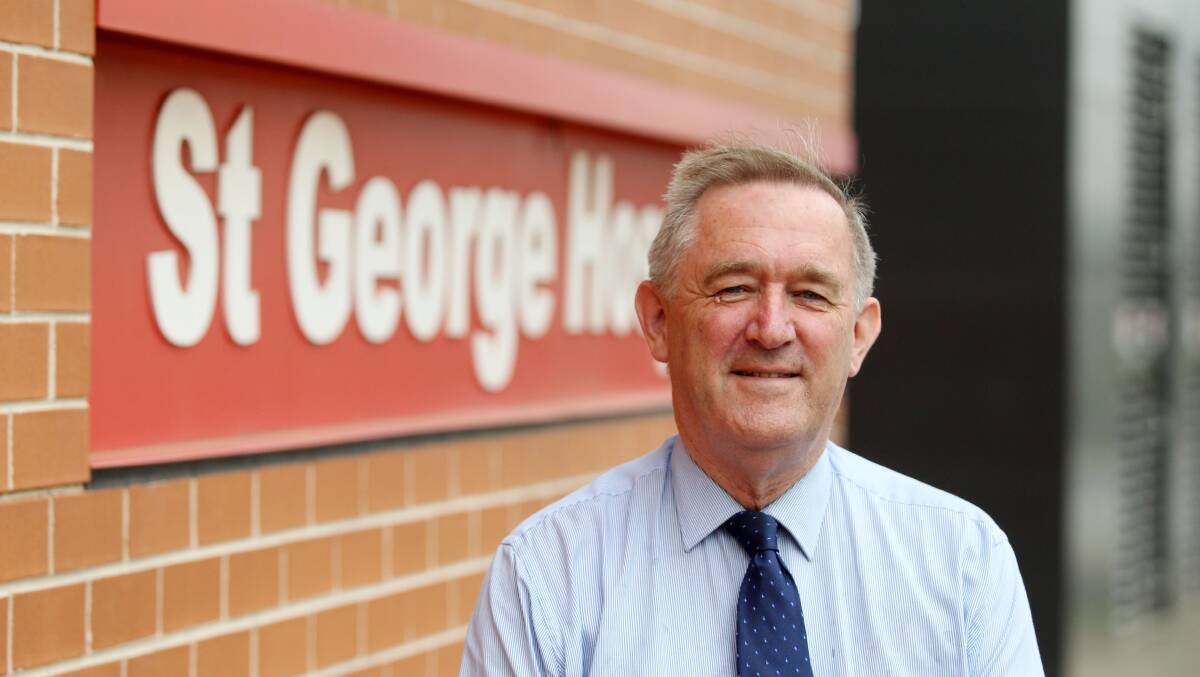Dr Frank Patrick Brennan, of Kogarah.
Create a free account to read this article
$0/
(min cost $0)
or signup to continue reading
Member of the Order of Australia (AM) for significant service to palliative medicine, and to medical education.

The death of his brother, Tom, to cancer when he was just 11 left a lasting impression on Dr Frank Brennan.
Then just 13, it was the first time he realised that doctors did not always make someone better and it was this understanding, coupled with witnessing his brother's suffering, that would eventually lead him to pursue a career in palliative care medicine.
Dr Brennan said palliative care did not exist at the time Tom died in the 1970s. In fact, it would be two decades before palliative care became its own specialty in Australia.
Dr Brennan began his career in medicine, working in both Sydney and South Africa, before he decided to study law, while continuing to practice medicine.
He embarked on a brief legal career before returning to medicine as a GP at the Aboriginal Medical Service in Redfern.
Three years later he decided to explore his growing interest in palliative care and started his training at the Sacred Care Hospice in Darlinghurst at a time when there was a "large number of patients with HIV/AIDS".
He spent a year working in palliative care in Ireland before returning to Australia.
Dr Brennan divides his time between two roles - renal-palliative care physician with the Renal Supportive Care service at St George and Sutherland hospitals, and palliative care physician and medical officer at Calvary Hospital, where he treats mainly Motor Neurone Disease and cancer patients.
He said palliative care had evolved "to be more than care of the dying".
"My role in palliative care is to get you comfortable when people are dealing with life-ending illnesses and their symptoms and giving them a good quality of life, and when it comes time, dying with dignity and respect," he said.
Dr Brennan said for Motor Neurone Disease patients, the palliative care process begins soon after diagnosis and continues for the duration of the illness, which is on average three years.
Cancer patients may also be referred to palliative care straight after diagnosis, especially if they need help dealing with pain or other symptoms.
Dr Brennan said kidney disease caused a myriad of painful symptoms and he worked closely with the Renal Supportive Care team and Professor Mark Brown to ensure renal patients had the best quality of life.
He said the lack of symptom management and bereavement support available now to palliative care patients were what he remembered most when he thought back to his brother's death "through the eyes of a 13-year-old".
"I was 13 when Tom was ill and I was aware that Tom was going to die so I was very conscious of what was unfolding and what was being endured by my parents," he said.
The former Australian and New Zealand Society of Palliative Medicine president and council member is a member of the World Hospice and Palliative Care Alliance Board of Trustees.
He is also a senior lecturer at University of NSW, an avid writer and the author of two books, including Standing on the Platform: Stories and Reflections from Palliative Care.

